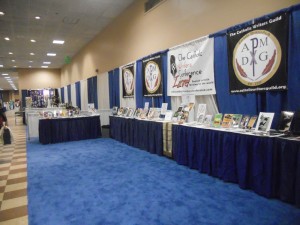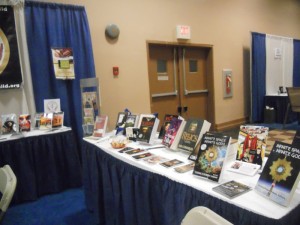Critique – Tips on how to do it well
Critique – a word that often scatters writers like a firecracker tossed into a flock of sparrows! But it doesn’t have to be that way. Since critique groups are forming in the Catholic Writers Guild forums, this is a good time to talk about critique, namely, how to be a good critique partner.
Many writers shun critique groups – “I don’t want to write my book by committee” they say, or “My voice will become muddled, maybe even lost”, and worst, “Someone will steal my ideas”. But my experience, both in art and in writing, is that those fears are largely unfounded.
A good critique group will understand and strengthen your voice, your story. They will support, encourage, and challenge you to produce the best writing of which you are capable. No downsides here! So how do you make your critique group a strong one, even one of the best?
Let’s start at the beginning. Critique is not criticism. That’s so important it bears repeating: Critique is not criticism. Critique is an honest, considered response to writing, and always includes a suggestion for improvement, with the caveat that the author may choose to accept or reject the suggestion. It’s still their work, not yours. A good critiquer doesn’t hesitate to applaud writing that inspires or touches, either. We all need to hear the good stuff!
Honesty, never brutal and always delivered with respect, is crucial. These attributes must be integral to your group, or there is no point. Ego (pride) needs to be parked at the door, and humility exercised in both giving and receiving critique.
Keep in mind that no one knows everything about the craft of writing. In my group, one person has a superb sense of story structure, another of grammar, another of characterization and motivation, and another of beautiful sentences and word choices. Take all of those qualities, list the opposite weakness, shuffle, and dole out weaknesses to those same members – and there you have it. Our group. The person whose strength is story structure is abysmal at spelling and grammar; the one who has characterization nailed has a hard time with structure. And so on. Capitalize on each others’ strengths, admit your weaknesses, and be open to comments.
Now that we have an idea of some desirable qualities of a critique group, what next? Establish ground rules. The first one should always be: Try the group out, give it a fair chance, and then if it’s not a good fit, feel free to leave, without hard feelings. If it’s not working, gracefully bow out and seek a different situation.
Next, agree upon a schedule for meeting and for number of words submitted. Ask each member what type of critique they want, i.e., the forest (for instance, structure) or the trees (perhaps copy edits), then tailor your remarks to their needs. Our group has four members; we meet in person once a week; we aim for about ten pages per person; and since we meet on Tuesday, we expect words to be emailed to the group by Sunday evening so we have adequate time to look at the work. Occasionally someone has no words to submit, and that’s okay, although if two weeks go by, the other members begin to nudge and encourage productivity. Support and accountability all rolled into one package!
This, of course, requires that we commit to both writing the set number of pages or words and to critiquing roughly thirty pages per week for each other. Commitment to the group and the process is key for success. Obviously, an online critique group will be a bit different, but ground rules and commitment still apply. Remember that purely electronic communication is lamentably prone to misunderstandings, so overexplain your comments until a pattern of trust has been established.
In my group, we all write very different sub-genres of fiction, but that is not an obstacle. If we stick to the basics, we’ve discovered we can offer plenty to each other even if we don’t read young adult, for instance, or write in first person. You may choose to critique only with authors in your own specific genre, and that’s fine. But if you choose to critique with authors of other types of writing, you owe your partners the willingness to step outside your comfort zone so that you can understand the conventions of their choice.
A word about bad critique groups. There are as many reasons for failed critique relationships as there are combinations of personalities. Hallmarks to watch out for are the rare member who feels that s/he knows it all, or runs roughshod over the feeling of others. Jealousy is sometimes a factor, as is insecurity. There’s a difference between honesty and harshness. Good critique will generate great conversations, so if critique shuts down communication between members, it needs to be addressed.
Sometimes it’s hard to hear valid critique, and sometimes it’s hard to sort out valid critique from mean-hearted critique. The best advice I’ve ever heard? Learn to say “Hmm. Interesting point. I will think about that.” Then, when emotion has settled, review and perhaps seek another opinion before deciding how to proceed.
Overall, critique partnerships can catapult the level of your writing up a level or two in a very short time. You’ll learn a lot from critiquing your partners’ work, too, which will translate to better writing on your part. Partners can help troubleshoot and brainstorm. And as Catholic writers, we have a unique opportunity to practice the virtues of patience, compassion, humility, kindness, and love within the setting of critique. Honesty, respect, and commitment will help shed light on the errors we are too blind to see in our own work – and that is a very good thing.
What questions or concerns do you have about forming or joining a critique group? Do you have experience or advice to share? What do you hope to gain from the Catholic Writers Guild critique groups?








